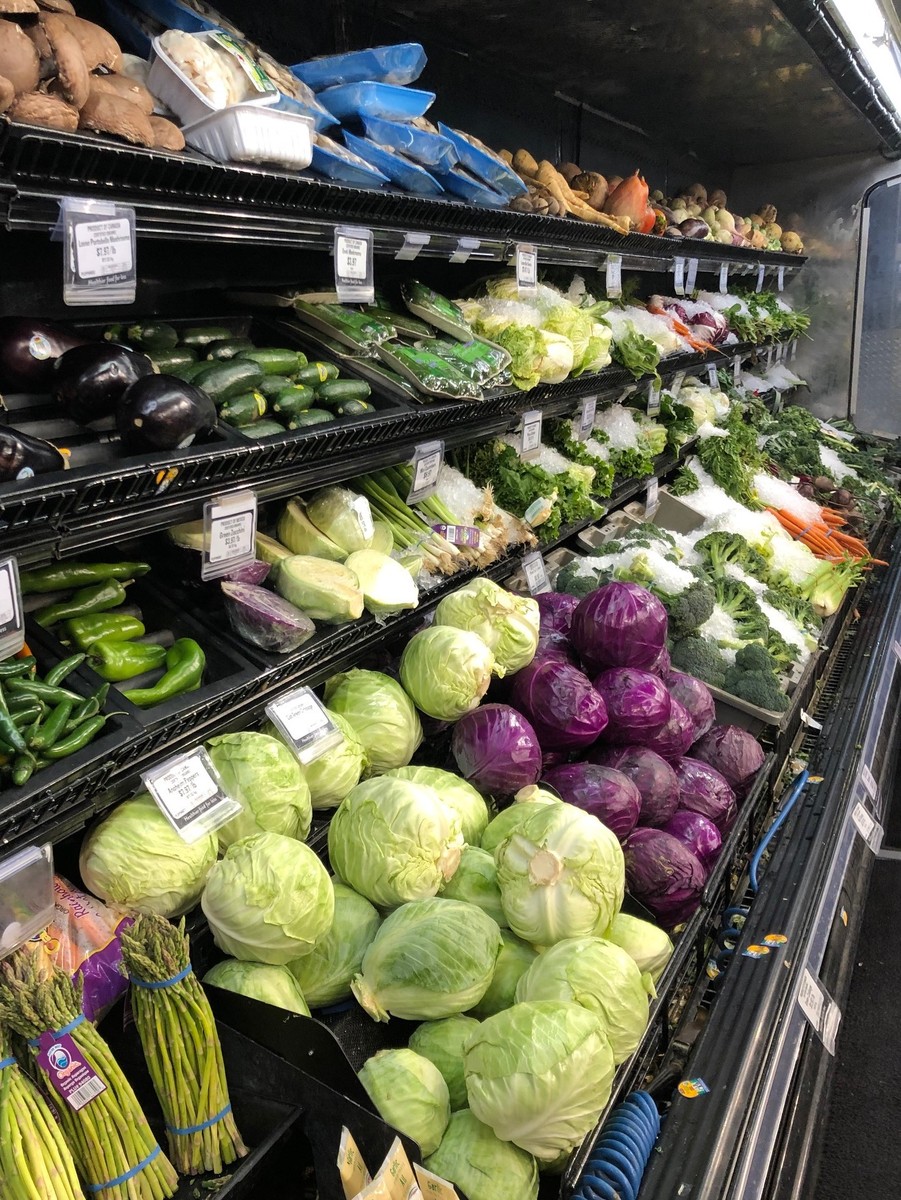Elevate your COVID Quarantine Diet
March 29, 2020 in Natural health
By: Dr. Michelle Pobega, ND and Mirela Cojoaca, RHN
A couple of days ago when I went grocery shopping I was pleasantly surprised to find extremely well stocked shelves of my favorite section: fresh produce.
Such a relief to see a big variety of food! I am really grateful to the local farmers and grocery stores for their effort to make healthy food available during this COVID-19 pandemic. On contrast, most of pasta, canned food, rice and beans were poorly represented.
While stockpiling on non-perishable food is definitely a good strategy these days, it is important to remember that a balanced diet should also include lots of vegetables and fruits.
And it is totally possible to eat balanced meals if you buy your food once a week or even every other week. For instance, some vegetables have quite a long shelf-life and are packed with vitamins, minerals and fiber. As an added benefit, they are also low in calories.
Regarding fruits, there are quite a few that can last for a couple of weeks: apples, pears, citrus fruits (oranges, grapefruits, lemons) and pomegranates.
Besides providing the body with adequate nutrients to support the immune system, digestion and detoxification, it is also important to improve hydration.
We have summarized some of our top tips and helpful reminders to support your eating habits at this time. First and foremost, be kind and compassionate to yourself during this time.If you think to improve at least one thing in your diet during self-isolation that is a great step in the right direction.
- Focus on trying to get that 2L of water in daily
- Front load your water intake in the day: In the morning have a 1 L jug or jar of water prepared to consume first thing upon waking up. Add a ¼ - ½ of a washed lemon to add in some digestion, detox and elimination invigoration.
- Prep another 1L jug/jar to sip on for the remainder of the day
- Consider setting a timer or downloading a water drinking app to help you remember
- If you feel like snacking – trying drinking water first.We often mistaken thirst for hunger J
- Flavour water during the day with some frozen berries, mint, cucumber, or with some diluted herbal tea.
- Try to still include a generous serving of veggies at every meal – whether fresh or frozen – the nutrients in these will work to support your immune system (especially during this pandemic), energy, gut health, brain function, detoxification etc.
- During your grocery shop, to minimize the need for frequent trips, considering heartier, more shelf stable vegetables/fruits such as:
- Kale, collard greens, swiss chard
- Broccoli, cauliflower, Brussels’s Sprouts
- Cabbage – can keep in the fridge for 2 weeks.
- Radishes, celery, carrots, beets.
- Onion and garlic – also great for immune health
- Lemons, oranges, grapefruits
- Apples
- Try out Cauliflower Rice instead of a carb at meals to boost veggie intake.It’s super easy to make.
- Smoothies are a great way to boost nutrient intake and can be a great meal replacement for breakfast. Be sure to include the basics for a well balanced smoothie:
- 1-2 spoonful’s of a healthy fat
- 1-2 spoonful’s of fibre (like flax or chia seeds)
- some frozen berries + a generous handful of greens (like washed kale or spinach) or a greens powder
- a scoop of protein powder of choice.
- Try and stick to a more regular eating schedule of breakfast, lunch and dinner daily. And pre-plan the day before so that making your meal doesn’t feel as stressful in the moment.
- Snacks – keep nuts, and cut up veggies, and washed fruit available at the house to snack on.
- If you still want something like chocolate, chips, etc. after dinner – go for it! Just try to have a proper meal with some veggies and protein first.
- Portion your treats – add some into a bowl. Avoid eating right out of the bag.



